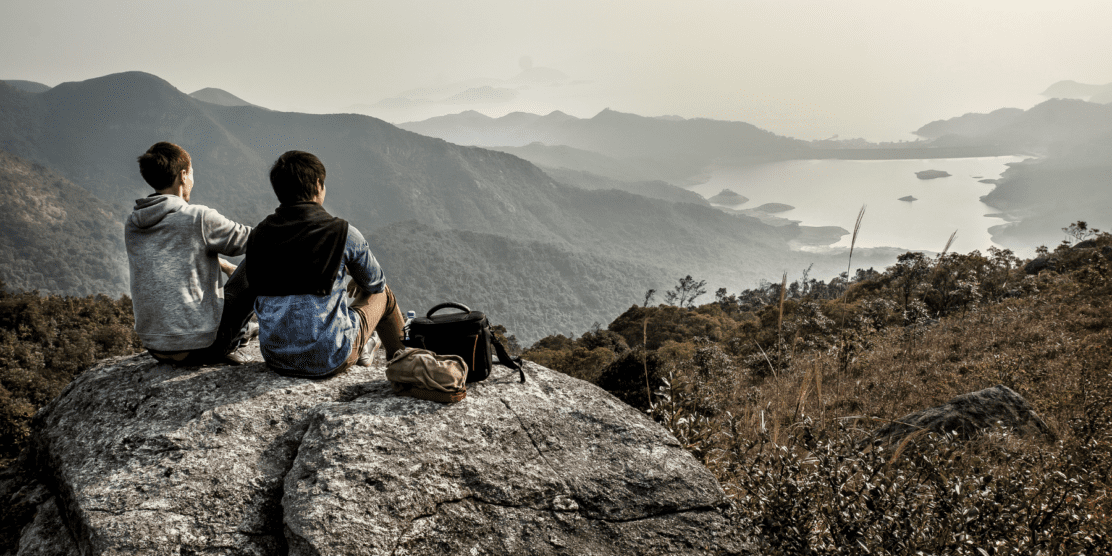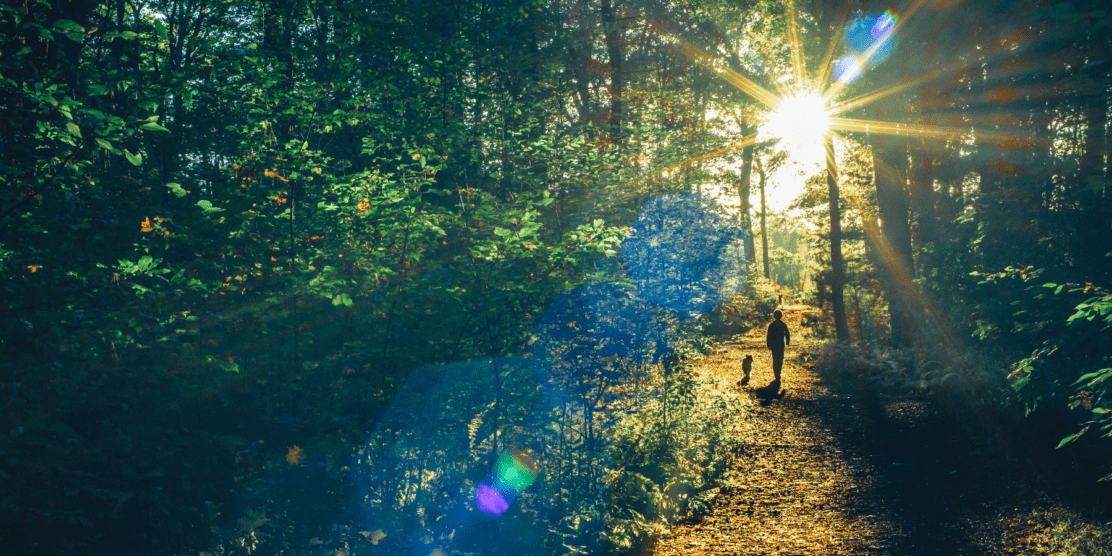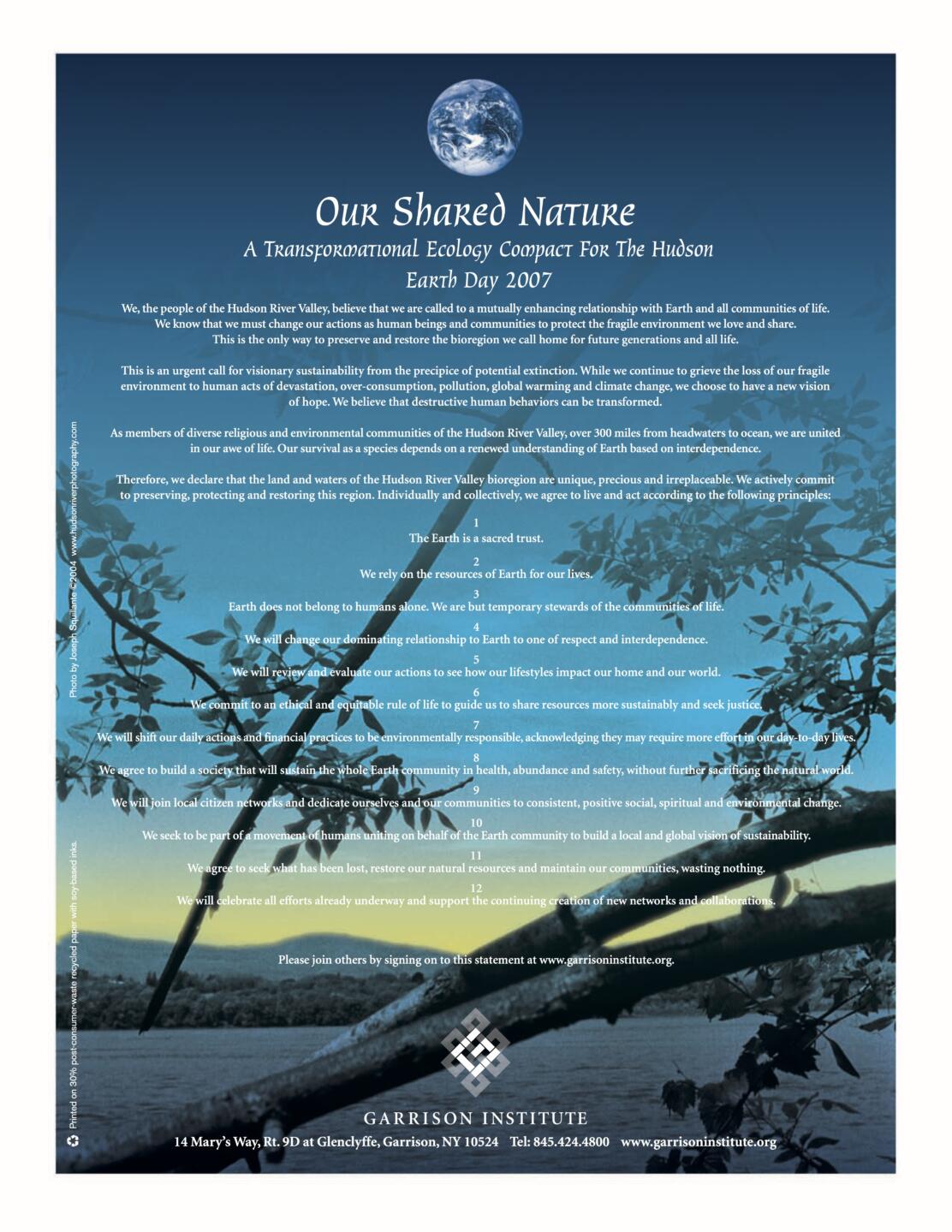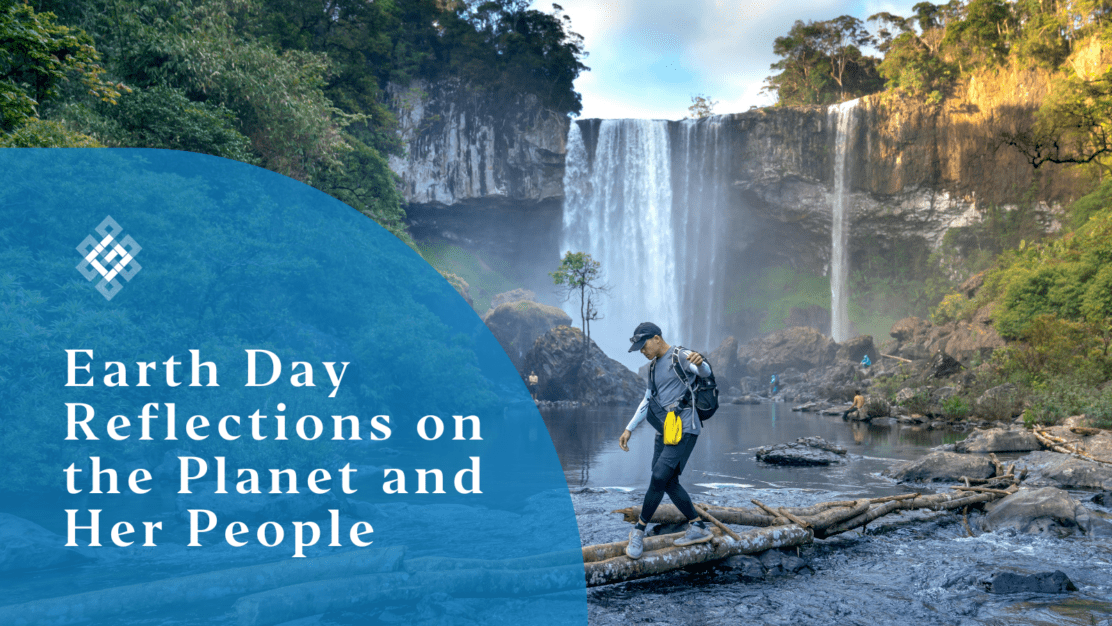Earth Day Reflections on the Planet and Her People
As we honor this year’s Earth Day celebration, we find ourselves reflecting on human relationships with nature and the complex ecologies that have supported life on Earth for millions of years. As a species, it’s clear we face a quandary rooted in mindsets that separate people and nature. However, cultivating gratitude, community resilience, and deep relationship with the land offers a hopeful path for a more harmonious future.
The Garrison Institute has long been dedicated to fostering connection with the natural world and promoting more mindful, sacred reciprocity with Earth. We have hosted numerous gatherings and practices over the past decades that cultivate compassion and awareness of the interdependence of all life.
For over 20 years, we have grown within movements and alongside thinkers as they live through these ideals toward wise action in the world. Reflecting on what’s been learned and what it means for our present focus can guide our future in this field. This Earth Day, we are looking back at past engagements and foundations for our work today.
In many ways, our Pathways to Planetary Health initiative is about the relationship between contemplative practice and nature. In this article from 2018 on Mindfulness in Nature, artist Sara Overton reflects on experiences and insights from her first mindfulness-in-nature retreat.
She describes how reconnecting with nature through mindfulness reveals a profound inner spaciousness. Overton invites communion with Earth as a pathway to healing, awakening, and a return to our true home. This article resonates today, pointing to how reconnecting with the Earth can offer grounding and resilience amidst a world impacted by chaos and fear.

The 2016 article Touching the Earth by John McIlwain – former director of the Garrison Institute’s Climate, Mind, and Behavior Program – further explores the profound connection between humanity and the Earth, drawing inspiration from the Buddha’s moment of enlightenment when he called upon Mother Earth as a witness. McIlwain emphasizes how Earth as a living being is a source of wisdom and strength, and how by touching the earth – literally or symbolically – we can renew a deep sense of belonging and purpose. This act of grounding is a spiritual practice that can help individuals face the overwhelming challenges of modern life with humility and integrity.
The article embodies the Garrison Institute’s commitment today to fostering Earth awareness, emphasizing that in an era dominated by technocratic solutions, a return to spiritual ecology and a deeper relationship with nature is essential for personal and planetary well-being.
This approach echoes the values of Indigenous communities, like those involved in the Standing Rock protests. In Recovering Our Reciprocal Relationship With the Land, McIlwain discusses the actions of Tribal Nations at Standing Rock, highlighting their role as “water protectors” concerned about a pipeline threatening the Missouri River and their water supply. The movement symbolized a broader fight to protect sacred land and combat the environmental harm caused by forces of greed and apathy towards communities and ecosystems. The article emphasizes how we can cultivate deep, sacred, and reciprocal relationship with the land—viewing land as a source of life and identity that comes with responsibility, rather than a commodity. The article suggests that modern society must rediscover its sacred bond with nature to restore balance and sustainability.

A 2017 interview with Sufi mystic Llewellyn Vaughan-Lee discussed the spiritual and moral dimensions of the ecological crisis, emphasizing the idea that the roots of environmental destruction lie in humanity’s separation from the sacred nature of the Earth. Vaughan-Lee stressed that technological solutions alone cannot address the deep spiritual disconnection at the heart of ecological predicaments.
Instead, he advocates for a shift in consciousness toward viewing the Earth as a living being to which we belong, motivating love, reverence, and care. This perspective emphasizes the need for a multigenerational spiritual approach to healing the planet and guiding reconnection with Earth, rather than relying solely on technocratic solutions.
Reflecting back on the founding of Garrison, the Hudson River Project in the early 2000s was a landmark effort to inspire connections across religious, political, scientific, and business interests in New York’s Hudson Valley with an emphasis on caring for the Earth. The project found that a connection to nature and place was a common thread among these intertwined communities, and that this sense of belonging to a place could be a motivator for bioregional coherence across social and environmental issues.

These collaborative efforts resulted in The Hudson River Compact: Our Shared Nature, a statement of values, principles, and actions that gathered nearly 200 signatories, including diverse faith leaders, environmental and civic groups, and municipal and state government entities. The Compact, formally launched on Earth Day in 2007, in many ways represents a place-based expression of the planetary values embraced in the Earth Charter, which is celebrating its 25th anniversary in 2025.
As we renew and continue these efforts in the Hudson Valley, we’re focused on bioregionalism as “an approach to change that aligns human systems with nature.” The Garrison Institute’s collaborative work in the Hudson Valley today seeks to inspire and coordinate regenerative projects and worldviews that contribute to the health of the Hudson Valley and deepen collective capacities for resilience. This summer, we will be hosting a capacity-building workshop in partnership with Garrison’s Contemplative Based Resilience program to cultivate individual and community resilience among those working on the frontlines of climate change, sustainable transitions, disaster response and recovery, and related issues in the Hudson Valley.
Planetary health invokes the sense that humans, like any other species, naturally coexist in mutuality, part of a complex and interdependent web of life. By co-creating our economies and societies with this in mind, we can begin to address the impacts of exploitation and overconsumption, which damage the fabric of living ecosystems we depend on, and instead prioritize actions that contribute to resilience, regeneration, and repairing relationships. By integrating what we know from science with the skills and wisdom cultivated through contemplative practice, our work will continue to create transformative and powerful pathways to planetary health.
Your support matters
Regenerating planetary health and a more compassionate world has never felt more important. We are thankful for the opportunity to create virtual and in-person spaces of sanctuary during these times. If you feel called to support our work, we welcome your tax-deductible contribution toward our efforts.
